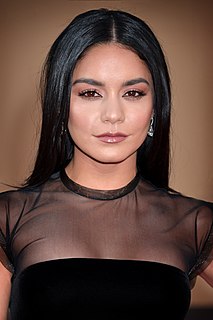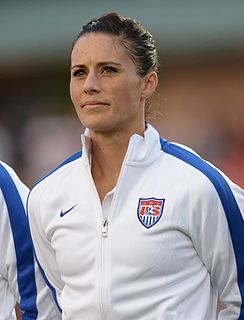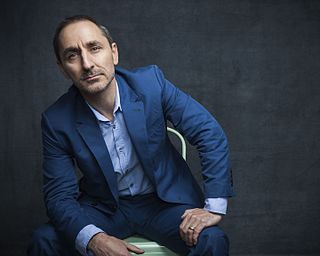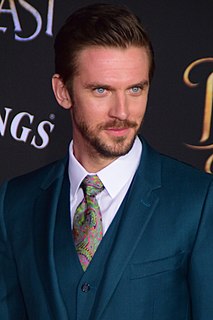A Quote by Tatiana Maslany
I think there's something really freeing about improv, that it's a collective, creative, in-the-moment piece. That's really exciting and really frustrating, because it's there and gone. There's an amazing interaction with the audience that happens because they are very much another scene partner.
Related Quotes
I think there's something really freeing about improv, that it's a collective, creative, in-the-moment piece. That's really exciting and really frustrating, because it's there and gone. There's an amazing interaction with the audience that happens because they are very much another scene partner. How they respond determines the kinds of stories we tell.
I think with improv - and I say it all the time because it's become such a catch thing that you talk about improv - if the scene is well-written, you don't need to improv. But that being said, if something strikes you in the moment and, most importantly, you know where the scene is supposed to go, it's no different than method acting.
It's great when improv is encouraged. It's a really fun thing. It depends on who's in the movie and how their process works, as well. It takes a director who is open to that because you have a script, but then something funny could happen on set. So, to have people around you who encourage improv is really exciting.
I was a pen pal with one guy, a long time ago. I think we only wrote to each other twice. We didn't really keep it up that long. But, I love it. I think it's really sweet and very creative and freeing, when you get to put a pen to paper, 'cause you don't really do it that much these days, with all this technology.
I've gotten to do some really amazing things, gone to some really amazing places, and just have some really unique experiences. And if I have one regret looking back it's that - not a regret even, because I think that's kind of labeling depression as something you can control - but I just wish I would have been able to enjoy it more fully.
I really, really liked shooting and doing the scene with Emilia Clarke and Peter Dinklage at the end of 'Winds of Winter,' when she gives him the Hand of the Queen. Because we shot it very simply. We felt like we had managed to do something that was visual but really was a very intimate scene between two people.
I love performing. I love doing improv. It's a totally terrifying experience, but it's something that I've always felt so strongly about and that I'm kind of obsessed with. And just as an actor, it's a great exercise. It's a great playground, you know, to try things out and to work on your skills. Because the mandate of improv is kind of the same as acting: It's all about your scene partner, it's all about being present and in the moment and exploring together as a team, a collaboration.
Theatre, when it is at its best, takes a lot of beating - the live experience and the shared collective experience of live storytelling is really special when it is good. Particularly here in New York because the audiences are amazing, very vocal and very engaged, and that makes theatre very exciting.

































